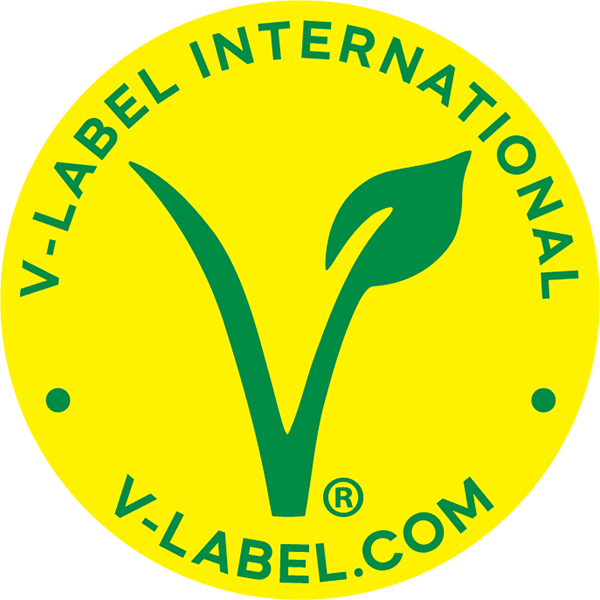The Ultimate Guide to Compliance for Quality Managers in Vegan Cosmetics
The cosmetics industry is undergoing a profound transformation as consumers increasingly prioritize transparency, sustainability, and ethical practices in their purchasing decisions. Vegan cosmetics have become a vital segment of this shift, offering products that align with consumer values. For quality managers, ensuring compliance with vegan standards is both a challenge and an opportunity to lead the way in this rapidly evolving market.
This guide provides a comprehensive look at what vegan compliance entails, the challenges involved, and actionable steps to achieve certification readiness. By addressing key issues such as ingredient sourcing, cross-contamination, and regulatory variations, quality managers can confidently navigate the complexities of vegan certification.

Understanding Vegan Cosmetic Standards
At its core, vegan certification ensures that products meet strict criteria designed to uphold ethical, sustainable, and transparent practices. The primary requirements include:
- No Animal-Derived Ingredients: Vegan products must exclude all animal-derived components (including additives and processing aids), such as beeswax, collagen, lanolin, carmine, squalane, stearic acid, gelatine, or chitosan. Substitutes, such as plant-based waxes, pigments, additives, and processing aids, must be used instead.
- Prohibition of Animal Testing: The entire production process—from ingredient sourcing to final product—must be free of animal testing. This aligns with global bans on animal testing, such as the European Union’s regulations.
- Documented Traceability: Certification requires detailed supply chain documentation to verify compliance. This includes records of sourcing, processing, and manufacturing.
Certification organizations, such as V-Label, have established guidelines to help companies meet these standards. Their Labels are widely recognized by consumers and signal a brand’s commitment to ethical practices.
Compliance Challenges and Practical Solutions
While the benefits of vegan certification are clear, achieving compliance can be a daunting process. Quality managers must address a range of challenges, including ingredient verification, cross-contamination risks, and regulatory differences.
Ingredient Sourcing
Challenge: Many common cosmetic ingredients, such as glycerin and stearic acid, can be derived from either animal or plant sources. Verifying the vegan status of these ingredients requires detailed supplier documentation.
Solution: Build strong relationships with suppliers who specialize in vegan-compliant ingredients. Request a Technical Data Sheet (TDS) or Composition Sheet and verify supply chain details. Consider using digital tools, such as blockchain, to enhance traceability.
Cross-Contamination Risks
Challenge: Facilities that produce both vegan and non-vegan products face significant risks of cross-contamination, which can compromise certification.
Solution: Implement dedicated production lines for vegan products or establish strict cleaning protocols between production runs. Staff training and regular audits are also critical to maintaining compliance.
Regional Regulatory Variations
Challenge: Certification standards and regulations vary between regions, complicating compliance for global brands.
Solution: Partner with certification organizations that have global expertise, such as V-Label. Regularly update your processes to reflect changes in regional regulations and ensure that your team is well-informed.
Labeling and Transparency
Challenge: Mislabeling a product as vegan can lead to reputational damage and legal consequences.
Solution: Collaborate with certification bodies to ensure accurate labeling. Conduct internal reviews and consult legal experts to verify compliance with all requirements.
Actionable Steps for Certification Readiness
Quality managers play a central role in ensuring that their organizations are prepared for vegan certification. Below is a roadmap to help guide the process:
- Conduct an Ingredient Audit: Begin by reviewing all ingredients – including additives and processing aids – used in your products. Identify any that may not meet vegan standards and collaborate with suppliers to find suitable plant-based alternatives.
- Enhance Supplier Relationships: Work exclusively with suppliers who provide verified documentation of their vegan-compliant materials. Long-term partnerships help ensure consistency.
- Implement Robust Policies: Develop company-wide policies to prevent cross-contamination and ensure compliance with vegan standards. Train employees to understand and uphold these policies.
- Engage a Certification Body: Partner with a reputable certification organization like V-Label to guide you through the process. Certification bodies provide detailed criteria and support throughout the journey.
- Prepare Documentation: Compile all necessary records, including ingredient lists, supplier declarations, and manufacturing protocols. These will be reviewed during the certification process.
- Streamline Manufacturing Processes: Dedicate equipment and production lines to vegan products where possible. If not feasible, establish rigorous cleaning protocols and schedule audits to monitor compliance.
- Leverage Technology: Use digital tools, such as blockchain or ERP systems, to track ingredient sourcing and production details. This enhances traceability and simplifies compliance.
- Communicate Certification: Once certified, display your vegan certification prominently on packaging and marketing materials. Transparency builds trust and strengthens consumer loyalty.
Why Vegan Certification Matters
Vegan certification offers far-reaching benefits for both brands and consumers. According to Allied Market Research, the global vegan cosmetics market is projected to reach $28.5 billion by 2031, growing at a CAGR of 5.9% from 2022 to 2031. This growth underscores the increasing importance of vegan products in the cosmetics industry.
For brands, certification serves as a powerful differentiator in a crowded market. Consumers increasingly prioritize products that align with their values, including ethical and sustainable practices. Certification also supports corporate sustainability initiatives, helping brands meet Environmental, Social, and Governance (ESG) goals.
The Future of Vegan Compliance in Cosmetics
As the demand for transparency and sustainability continues to grow, vegan compliance will become an even more critical factor in the cosmetics industry. Emerging technologies, such as blockchain, will enhance traceability, while certification bodies will continue to refine standards to meet evolving consumer expectations.
For quality managers, staying ahead of these trends is essential. By embracing vegan certification, companies can position themselves as leaders in ethical beauty, build lasting trust with consumers, and drive long-term growth.
Are you ready to take the next step in your vegan certification journey? Contact V-Label for expert guidance and support to achieve your compliance goals.

 Argentina
Argentina Australia
Australia België (NL)
België (NL) Bosna i Hercegovina
Bosna i Hercegovina Brasil
Brasil Chile
Chile 中国
中国 Česká republika
Česká republika Colombia
Colombia Costa Rica
Costa Rica Danmark
Danmark Deutschland
Deutschland Ecuador
Ecuador España
España France
France Ελληνικά
Ελληνικά Hrvatska
Hrvatska Indonesia
Indonesia Italia
Italia Lietuvių
Lietuvių 한국어
한국어 Magyar
Magyar Lebanon (EN)
Lebanon (EN) Melayu
Melayu Mexico
Mexico Nederland
Nederland Nigeria
Nigeria Norge
Norge Österreich
Österreich Perú
Perú Polski
Polski Português
Português Română
Română Русский
Русский Slovenčina
Slovenčina Türkçe
Türkçe South Africa
South Africa Suomi
Suomi Svenska
Svenska Schweiz
Schweiz Українська
Українська الامارات العربية المتحدة
الامارات العربية المتحدة Tiếng Việt
Tiếng Việt